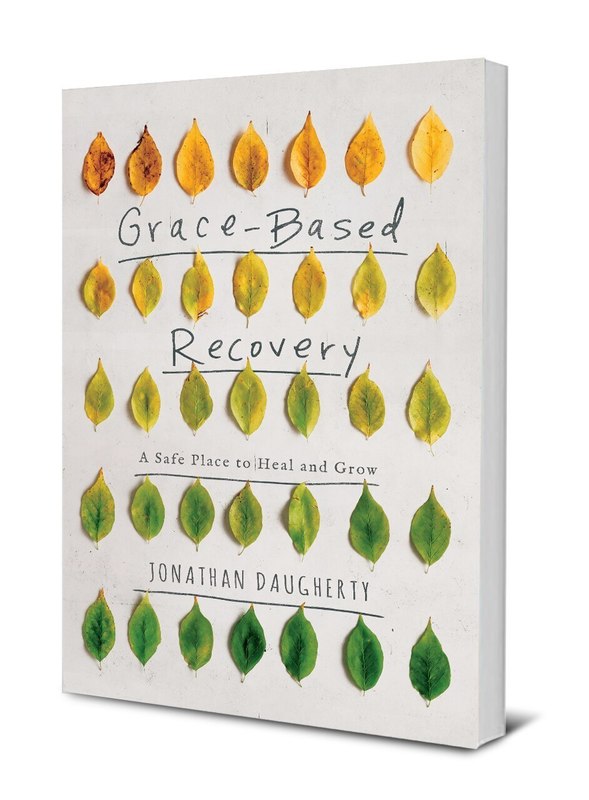No one enjoys admitting they are wrong, or weak. But for every addict who enters recovery, this confession is the critical first step: My life has become unmanageable, and I am powerless to overcome my addiction on my own. Healing from addiction only begins after we admit our broken condition.
But is there more to recovery than this first step? Does robust healing come from simply admitting weakness and seeking out others for accountability, or are there additional principles and practices for recovery that might have the most powerful, lasting impact? Sometimes the best benefits of the healing process are not discovered until you have walked the road of recovery for a while.
I began my own recovery journey more than twenty years ago. I admitted my addiction, brokenness, and my lack of ability to stop my destructive patterns on my own. I joined a support group, entered regular counseling, and devoured every resource I could on recovery. My life started to change.
The first few years of my recovery laid the groundwork for entirely new patterns of thought and behavior. No more isolation. No more hiding and lying. Building accountability friendships. Establishing healthy boundaries. Dealing with triggers and responding swiftly to temptations.
After a few years, though, I discovered a “jewel” of recovery that was buried beneath the initial layers of simply establishing healthy boundaries and engaging in godly community: the gift of gratitude. As my life took a dramatic turn towards the light, this precious commodity of a grateful heart began to emerge, and it has made all the difference in my sobriety since. And I think it will make a difference in your recovery, too.
Three Ways to Incorporate Gratitude into Your Recovery Process
Gratitude is intentional, conscious, expressive appreciation for the goodness and grace of God. It goes beyond mere sentiment. Gratitude, when practiced regularly and intentionally, develops into a character trait—you become a grateful person. This step of growth brings the very real benefits of personal peace, joy, and purpose, along with closer, more meaningful relationships. Living as a grateful person also sets you free from the shackles of envy, pride, and shame.
Here are a few key ways I’ve learned to regularly practice gratitude.
1. Count Your Blessings
In the western world, especially in the United States, there is not much value placed on remembering. We don’t live in a reflective culture. Our lives are driven forward. The shortcoming of this mindset is that it does not foster a grateful spirit.
Gratitude practiced in recovery is about remembering God’s good and gracious acts. I remember his love, faithfulness, and mercy in pulling me from the dark pit of my addiction and graciously providing fresh hope to live in the light. It was like being trapped in a deep, dark well of my own digging and then being lifted up into endless fields of light and beauty.
God showed up in my lowest moments (when I wanted to kill myself) and reminded me of his love, his truth, his grace. He gave me new friends to care for me and hold me accountable, and a new heart to desire what is good instead of what is evil. Remembering these acts of kindness by God produced a more grateful heart in me.
Gratitude also causes us to celebrate that God is faithful even when we are not. When I take the time to reflect on my life through the lens of God’s goodness and grace, I begin to see over and over again his hand of protection and provision and patience. Tears of thanksgiving often flow when I think about this, and a new kind of healing begins in my soul.
Reflect today on God’s goodness in your life, and respond to Him with grateful worship. How has God “showed up” in your lowest moments? What has God done that reveals his faithfulness, even in the midst of your disloyalty? What is deserving of celebration as you look back at your life through a lens of gratitude?
Regularly reflecting on God’s mercies can establish a new pattern of thought and behavior in your life that will benefit you far beyond just recovery.
2. Invite Correction
Proverbs 12:1 (NIV) says, “Whoever loves discipline loves knowledge, but whoever hates correction is stupid.” I lived much of my life as a stupid man, and so does every other addict. Addiction breeds stupidity because addiction fosters self-absorption. And a self-absorbed person is resistant to correction. As hard as it is to open ourselves to reproof, we need to humbly embrace the fact that we are often blind to our own sin and that we need the gift of others who can graciously point us toward the light.
I remember one time early on in my recovery I was meeting with one of my accountability partners and I was confessing a recent slip. But I was being evasive in my language and not really coming totally clean. He nailed me on it. He exposed my heart and laid out my deceitful motives in candid language. I was stunned. I felt myself wanting to get defensive, even though I knew he was right. His rebuke was intended to correct me and keep me from wandering any further down the path of self-deception and denial.
After this brother confronted me, I finally relented and agreed with his assessment. And I went a step further and expressed my gratefulness by giving him a big bear hug. He was being a true brother to me, and I was truly thankful—even though the moment of correction was uncomfortable.
Gratitude in recovery means we humble ourselves before others, admitting that our hearts can deceive us and we need their help to see our blind spots.
3. Share the Gospel
You may be wondering, How does sharing the gospel fit in with gratitude in recovery? Well, the only way I can imagine anyone being properly motivated to share the gospel is because they are grateful themselves for their own rescue and new life in Jesus.
The gospel (good news) of Jesus Christ is the greatest message in the world. It is what gives us hope for reconciliation with God and is the only way we can be freed from the penalty and power of sin in this life. And once you understand that and submit your life to Jesus, gratitude can’t help but overflow.
Here are just a few benefits of the gospel that should result in our gratitude and praise to God. By faith in Jesus Christ:
- Your sins are forgiven—forever! (1 John 1:9, Colossians 1:13–14, Ephesians 1:7)
- You have the promise of heaven. (John 14:1–3, Ephesians 1:13–14)
- God’s Spirit dwells in you, guiding you. (John 14:26, 16:13, Romans 8:9–11)
- You are now a child of God; you belong to Him, with all the privileges of sonship. (1 John 3:1, John 1:12)
- You are called a saint, holy, beloved, righteous. (Ephesians 1:4, Colossians 3:12, Ephesians 5:1, 1 Peter 2:5)
And there is even much more that we possess as a child of God. Is this not a cause for gratitude! And from such gratefulness, how can we keep this message to ourselves? Sharing the gospel with others ever reminds us of our own need for the gospel, thus increasing our gratitude and deepening our humility.
A Shift in Focus
The key paradigm shift that gratitude provides us in recovery is that it continually moves us from self-focused to others-focused. The self-absorption of addiction is progressively eroded away by the grace and goodness of God that produces within us increasingly grateful hearts.
Do you want lasting recovery that goes far beyond behavioral rules—a deep-seated change for a lifetime? Then begin today to cultivate a heart of gratitude. You won’t regret it!
Grace-Based Recovery: A Safe Place to Heal and Grow
A resource for addiction support and recovery groups, Grace-Based Recovery is a small-group study designed to help people suffering from addiction and those close to them understand God’s grace and why it is the only path to true freedom.






